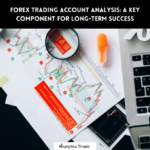What Are Time Zones?
Time zones are geographical regions that have the same standard time. They are used to measure the time of day in different parts of the world. Time zones are based on the rotation of the Earth and the position of the sun in the sky. The world is divided into 24 time zones, each one hour apart.
How Do Time Zones Affect Forex Trading?
Time zones play a crucial role in forex trading. They determine the duration of trades, the time of day when the market is open, and the time when traders can enter and exit trades. The forex market is open 24 hours a day, five days a week. This is because the market is global and there are traders in different time zones. When the market is open in one time zone, it is closed in another. This means that traders in different time zones can trade at different times of the day.
The Impact of Time Zones on Trade Duration
Time zones have a significant impact on the duration of trades in the forex market. The duration of a trade is determined by the time it takes for the market to move from the entry point to the exit point. The duration of a trade is affected by the time zone in which the trade is executed. If a trader is trading in a time zone that is different from the time zone in which the market is open, the duration of the trade will be longer. This is because the market will take longer to move from the entry point to the exit point.
Time Zone Differences
Time zone differences can have a significant impact on the duration of trades. For example, if a trader is trading in the United States and the market is open in Europe, the duration of the trade will be longer than if the trader was trading in Europe. This is because the market will take longer to move from the entry point to the exit point.
Time of Day
The time of day also has an impact on the duration of trades. If a trader is trading during the peak hours of the market, the duration of the trade will be shorter than if the trader was trading during the off-peak hours. This is because the market will move faster during the peak hours.
Market Volatility
Market volatility also affects the duration of trades. If the market is volatile, the duration of the trade will be shorter than if the market is not volatile. This is because the market will move faster when it is volatile.
Trading Strategy
The trading strategy also affects the duration of trades. If a trader is using a long-term trading strategy, the duration of the trade will be longer than if the trader was using a short-term trading strategy. This is because the market will take longer to move from the entry point to the exit point when a long-term trading strategy is used.
Trading Platform
The trading platform also affects the duration of trades. If a trader is using a slow trading platform, the duration of the trade will be longer than if the trader was using a fast trading platform. This is because the market will take longer to move from the entry point to the exit point when a slow trading platform is used.
Table of Time Zones and Trade Duration
| Time Zone | Trade Duration |
|---|---|
| United States | Longer |
| Europe | Shorter |
| Peak Hours | Shorter |
| Off-Peak Hours | Longer |
| Volatile Market | Shorter |
| Non-Volatile Market | Longer |
| Long-Term Trading Strategy | Longer |
| Short-Term Trading Strategy | Shorter |
| Slow Trading Platform | Longer |
| Fast Trading Platform | Shorter |
Questions and Answers
What are time zones?
Time zones are geographical regions that have the same standard time. They are used to measure the time of day in different parts of the world. Time zones are based on the rotation of the Earth and the position of the sun in the sky. The world is divided into 24 time zones, each one hour apart.
How do time zones affect forex trading?
Time zones play a crucial role in forex trading. They determine the duration of trades, the time of day when the market is open, and the time when traders can enter and exit trades.
What is the impact of time zones on trade duration?
Time zones have a significant impact on the duration of trades in the forex market. The duration of a trade is determined by the time it takes for the market to move from the entry point to the exit point. The duration of a trade is affected by the time zone in which the trade is executed. If a trader is trading in a time zone that is different from the time zone in which the market is open, the duration of the trade will be longer.
Summary
Time zones play an important role in forex trading. They determine the duration of trades, the time of day when the market is open, and the time when traders can enter and exit trades. Time zone differences, the time of day, market volatility, trading strategy, and trading platform all have an impact on the duration of trades. To learn more about the impact of time zones on trade duration in forex trading, watch this video from YouTube.






Comments